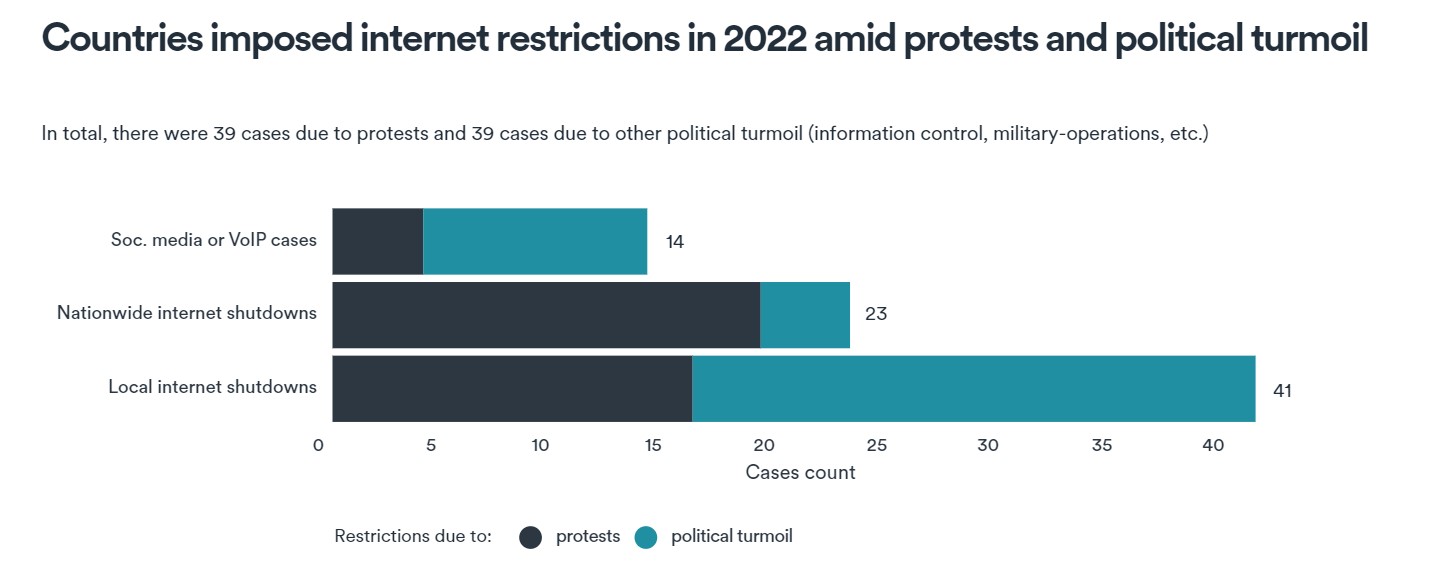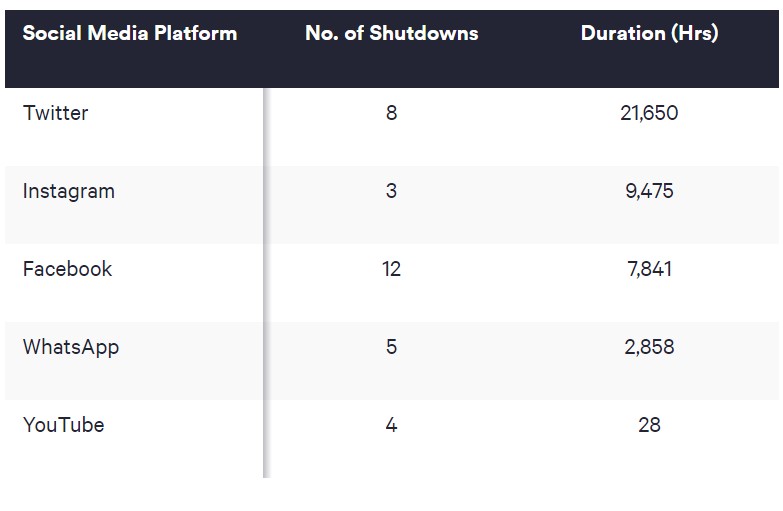New research has shown that the global economy has lost over $40 billion to internet shutdowns since 2019, with 2022 accounting for over 50% of the loss.
In recent years, governments around the world have adopted internet restrictions as a tool for whipping their citizens into line. While some go as far as shutting down access to the internet, others restrict access to certain websites they feel are fueling anti-government rhetoric.
Generally, experts and analysts alike have focused on the human rights abuses that come with such restrictions, neglecting the economic impact these measures have. Recent research shows that governments’ efforts to impede access to the internet can have adverse economic effects.
Internet restrictions lasted over 50k hours in 2022
According to top10vpn research, the economic cost of restricting access to the internet jumped by 323% to $23.79 billion in 2022. During the year, top10vpn said there were 114 outages across 23 countries, affecting 710 million people — this represents a 41% growth on the year-on-year metrics. However, a separate Surfshark report placed the affected people at 4.2 billion.
Top10vpn said internet shutdowns lasted over 50,000 hours (over 2000 days), while Surfshark added that the average duration of social media censorship was 114 days. The reports noted that governments that adopted internet restrictions were trying to avoid protests or a “restriction on citizen’s freedom of assembly.”

Facebook and Twitter are the most hated platforms by the government
The reports revealed that the most hated platforms by governments worldwide included social media platforms Twitter and Facebook.
According to top10vpn, Twitter suffered the most deliberate disruption by government agencies as it was off for 21,560 hours which is 56% more than Instagram and 64% more than Facebook. Surfshark, however, argued that Facebook suffered the most from authoritarian governments.

According to Surfshark, 46% of the world’s population have, at some point, had their access to the Mark Zuckerberg-led platform restricted by a government.
From the above, it could be deduced that the social media platforms were both heavily censored by the governments as it provides a voice for the masses. The growth of these platforms has birthed a new wave of citizen journalism that has made it much more difficult for governments to control the narrative.
For context, the Nigerian government lost over $26 billion to its seven-month ban on Twitter in 2021.
Russia suffered the highest economic loss in 2022
Meanwhile, Russia’s invasion of Ukraine saw it suffer the highest economic loss to internet restrictions in 2022, according to top10vpn.
The Vladimir Putin-led country accounted for over 90% of $23.79 billion in losses, losing $21.5 billion, while other significant losers included Iran, which lost $773 million, and Kazakhstan, with $410.7 million.
The United Nations said the effects of internet shutdowns could be far-reaching as it prevents businesses from conducting their usual operations.
World Bank says internet access lead to improved economic outcomes
World Bank argued that “internet access can drive economic development through its impacts on both the supply and demand sides of an economy.”
According to the financial agency, research showed that internet technologies help to increase workers’ productivity. At the same time, it can help to improve workers’ skills and access to the market.
The World Bank concluded that:
“Internet access appears to lead to greater economic activity and other beneficial economic impacts in many, though not all, developing country contexts.”









 and then
and then